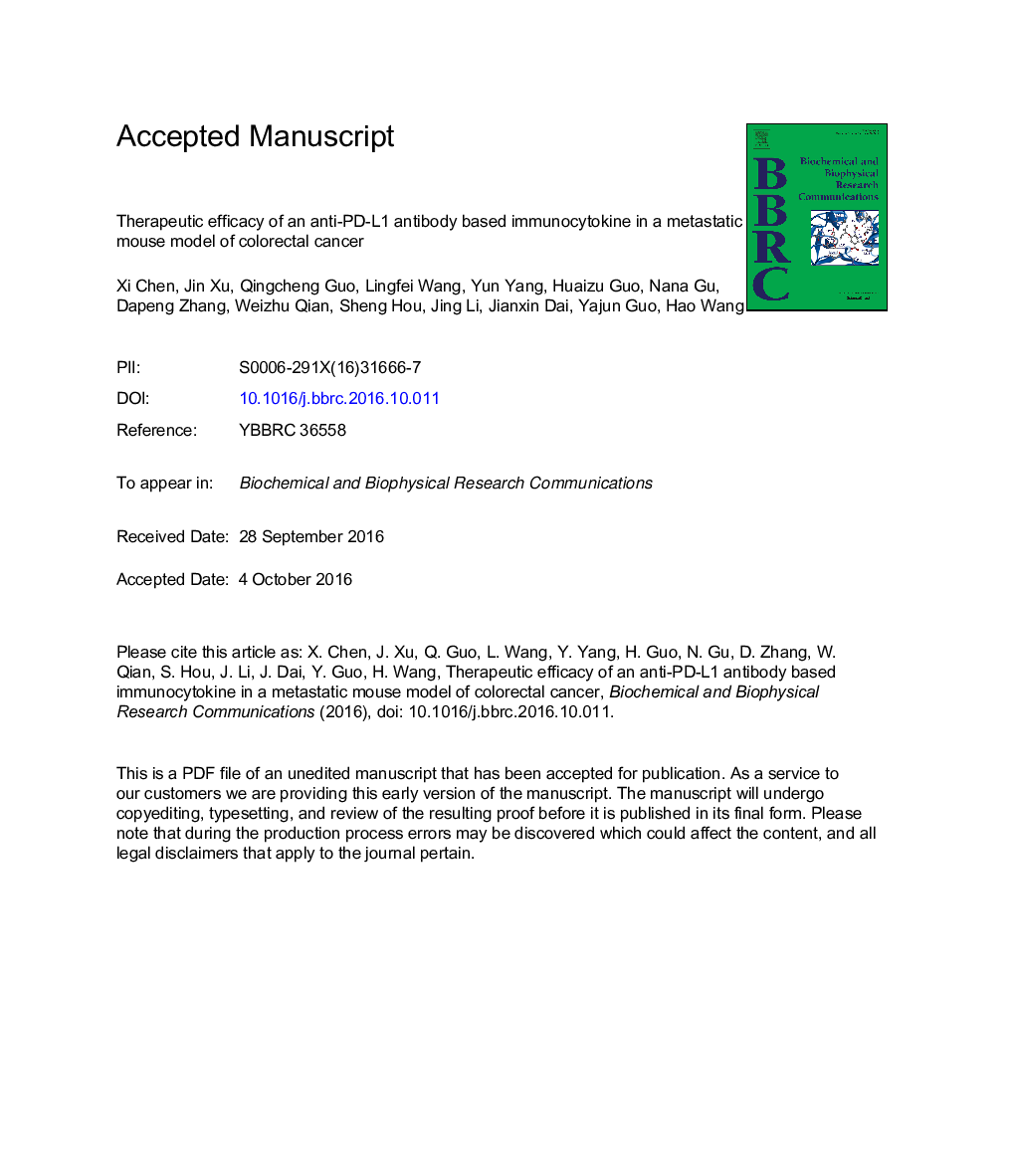| Article ID | Journal | Published Year | Pages | File Type |
|---|---|---|---|---|
| 5506666 | Biochemical and Biophysical Research Communications | 2016 | 19 Pages |
Abstract
Immunocytokines (antibody-cytokine fusions) have been proved to be a promising class of therapeutic agents for tumors. Anti-PD-L1 antibodies or IL-2 have been used to treat a variety of cancers. Here, in order to remove T cell inhibition and increasing the IL-2 concentration in the tumor microenvironment, we engineered a novel anti-PD-L1 antibody based immunocytokine by fusing hIL-2 to the C-Term of atezolizumab, denoted as BIPI. Our results revealed that BIPI was effective in stimulating T cell activation in vitro and could selectively localize to the tumor. Furthermore, tumor regression and prolonged survival were also observed in the metastatic colorectal cancer mouse model. The obviously longer survival mice in BIPI treatment group turned out depending on the function of CD8+ T cells. The IFN- secreted from CD8+ T cells in the spleen also contributed to the better tumor inhibition profile in BIPI treatment group than in anti-PD-L1 or IL-2 treatment alone. Taken together, our data evidenced the enhanced antitumor potency of BIPI, suggesting its potential use for cancers with a low response to the anti-PD-L1 or IL-2 treatment.
Related Topics
Life Sciences
Biochemistry, Genetics and Molecular Biology
Biochemistry
Authors
Xi Chen, Jin Xu, Qingcheng Guo, Lingfei Wang, Yun Yang, Huaizu Guo, Nana Gu, Dapeng Zhang, Weizhu Qian, Sheng Hou, Jing Li, Jianxin Dai, Yajun Guo, Hao Wang,
